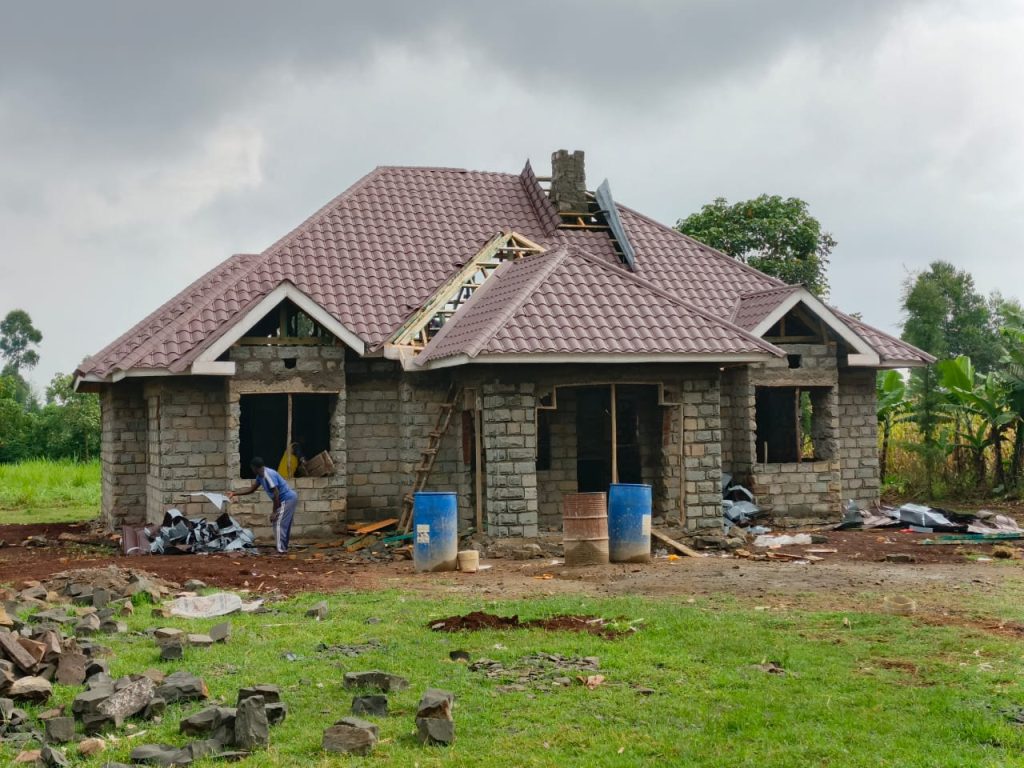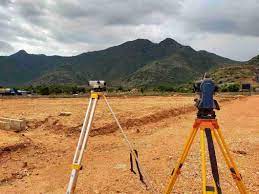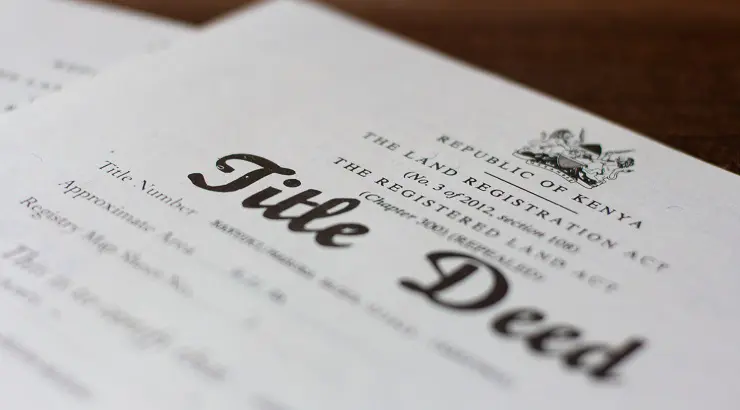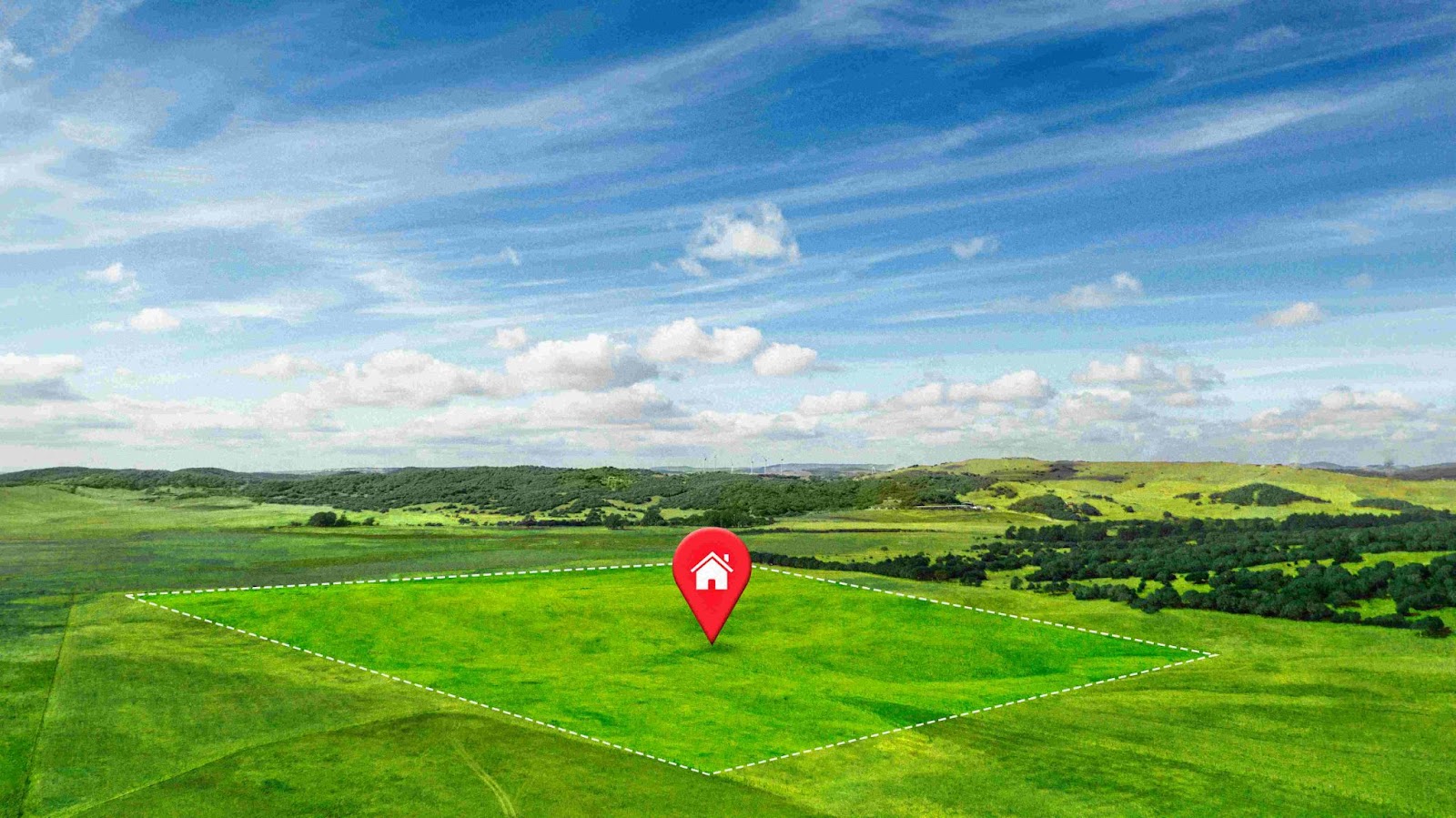Tips for Negotiating Land Prices in Kenya
Learn tested, Kenya-specific negotiation tactics to buy land cheaper — from title checks, realistic discount benchmarks and payment-term leverage to legal closing costs (stamp duty, transfer, rates). Practical checklist + sample offer scripts to help you win the deal.
Introduction
Tips for Negotiating Land Prices in Kenya
Buying land in Kenya can be exciting, but prices often vary wildly — and if you’re not careful, you could easily overpay. Learning how to negotiate land prices in Kenya helps you save money, reduce risk, and close your deal faster. With the right research and timing, you can get quality land at a fair price while avoiding common traps that cost buyers thousands.
Understand Kenya’s Land Market (Why Prices Vary)
Before you begin negotiating, it’s crucial to understand what drives land prices across Kenya. Every county, town, and even neighbourhood has unique factors that influence cost — from road access to zoning laws. Knowing these elements gives you stronger bargaining power during land price negotiations.
Key Price Drivers — Location, Infrastructure Projects, Zoning & Land Use
Location remains the biggest factor in any land price negotiation in Kenya. Land near growing towns, tarmacked roads, or industrial hubs like Tatu City or Naivasha often costs more.
Infrastructure projects such as new highways, SGR stations, or planned bypasses can quickly raise land value. Always check county physical plans or the Kenya Urban Roads Authority (KURA) website for upcoming projects.
Zoning also affects prices. Residential, agricultural, and commercial zones have different permitted uses — and land-use restrictions can limit development or resale potential.

Market Cycles & Timing — Hot Markets vs. Buyer’s Markets
Just like housing, land values rise and fall in cycles. During hot markets, prices increase fast due to high demand or speculation, especially in Nairobi’s outskirts like Ruai or Ruiru.
If you’re patient, you can buy during slow markets when sellers are motivated. For example, during election seasons or periods of low liquidity, buyers often get 5–15% discounts. Knowing when to strike can save you a lot of money.
Diaspora & Investor Demand — How It Affects Pricing
Diaspora investors often buy land remotely, sometimes accepting listed prices without much negotiation. This trend can push prices up in areas popular with returnees, such as Kitengela or Kamulu.
If you’re a local buyer, use this to your advantage. Visit properties physically, assess comparable plots, and negotiate firmly based on real market data — not inflated asking prices.
Do Thorough Due Diligence Before Bargaining
Before starting any land price negotiation in Kenya, do a full background check on the property. Many buyers lose money by skipping key verification steps, only to discover ownership or boundary issues later. Proper due diligence not only protects you but also strengthens your bargaining position when negotiating land prices.
Title Deed Types, Land Rates, and Common Title Problems in Kenya
Start by confirming the title deed type. Land in Kenya may have a freehold or leasehold title — with leaseholds often found in cities and requiring renewal after a set period. Verify the title at the Ministry of Lands or through the ArdhiSasa platform to ensure it’s genuine.
Check that land rates and rent (if applicable) are fully paid to the county government. Unpaid dues can delay transfer or reduce the property’s appeal.
Be alert for common title problems such as double allocation, missing records, or fake deeds. Always work with a licensed surveyor and lawyer during verification.

Boundary Verification, Cadastral Surveys and Physical Markers (Why Survey Plans Matter)
A professional boundary check helps prevent disputes. Ask your surveyor to match the beacons on the ground with those shown in the cadastral map from the Survey of Kenya.
Physical inspection ensures the land exists as described and hasn’t been encroached upon. Missing or shifted beacons can indicate illegal subdivision or fraud. Having clear boundaries gives you confidence when negotiating since you’re sure of what you’re buying.
Encumbrances, Outstanding Levies, and Community/Customary Claims
Always conduct an official search at the Land Registry to reveal any encumbrances — such as loans, caveats, or court orders. These issues can block transfer or delay development.
If the land lies in rural or ancestral areas, confirm there are no community or customary ownership claims. Talk to local elders or the chief before paying a deposit. Outstanding levies or family disputes can cause endless legal battles later.
Benchmark Prices — Research Comparables & Real Figures
To negotiate confidently, you must know what similar land is actually selling for. Sellers often quote inflated prices, hoping buyers don’t check. Doing a simple price comparison across multiple listings gives you solid data to base your offer on.
Using Local Sales Data, County Rates, and Agent Comps (How to Get Realistic Price Ranges)
Check recent land sales in the same area through BuyRentKenya, Property24, or county valuation offices. Compare land size, accessibility, and amenities like power and water.
Agents can also provide “comps” — recent selling prices of comparable plots. Use these figures to support your negotiation, showing the seller you’ve done your research. The more evidence you have, the easier it becomes to justify a lower offer.

Typical Negotiated Discount Benchmarks (What Sellers Commonly Accept: 5–15% Ranges by Market)
In most Kenyan markets, sellers expect some negotiation. Discounts of 5–10% are common in high-demand areas like Nairobi outskirts, while 10–15% or more may be possible in rural or slower markets.
Always start slightly below your target price so you have room to adjust upward. Combine this strategy with a strong reason — such as needed repairs, unpaid rates, or poor road access — to make your offer convincing.
Prepare Your Negotiation Power (Finance & Strategy)
Strong finances and a clear plan give you the upper hand in any land price negotiation in Kenya. Sellers are more likely to agree to better terms when they see you’re organised, serious, and ready to close quickly. Building financial readiness also helps you stay disciplined and avoid emotional decisions.
Cash vs Instalments — How Payment Method Changes Leverage
Cash buyers usually have more bargaining power. When you can pay the full amount immediately, sellers may offer discounts because they avoid delays or risks tied to financing. This is especially effective with individuals or families selling land urgently.
However, instalment payments can also work to your advantage. In slower markets, some sellers prefer flexible terms rather than waiting months for a lump sum. Use this option to negotiate a better total price or longer payment window. Always put instalment agreements in writing to protect both sides.
Pre-Approved Financing, Deposit Readiness, Walk-Away Price
Having pre-approved financing or ready funds signals confidence and reliability. It also allows you to act fast when a seller accepts your offer. Before making an offer, calculate your total costs — including legal fees, stamp duty, and transfer charges — to avoid surprises.
Decide on your walk-away price early. This is the maximum amount you’re willing to spend, even if negotiations get emotional. Sticking to it prevents overspending and gives you firm control during discussions.

When to Use an Agent, Lawyer or Local Mediator (Cost vs Benefit)
Real estate agents can help locate fairly priced land and handle initial negotiations. However, ensure they’re registered with the Estate Agents Registration Board to avoid scams.
A conveyancing lawyer should always review agreements and ensure compliance with land laws. Local mediators or elders can also be valuable when buying in community or rural areas, where relationships and trust matter most.
While these professionals come at a cost, they can save you much more by preventing costly mistakes.
Building Rapport & Uncovering Seller Motivation
Negotiation isn’t only about numbers — it’s about people. When buying land in Kenya, understanding the seller’s situation can open the door to better deals. Building rapport shows respect and can make the seller more flexible with price or payment terms.
Questions to Reveal Urgency (Relocation, Probate, Investor Sell-Off)
Ask polite but direct questions to find out why the seller is parting with the land. Are they relocating, paying off a loan, or clearing a family estate? These reasons often create urgency — and urgency gives you leverage.
If it’s an investor sell-off or a subdivider clearing stock, you can confidently negotiate for discounts or extra terms like reduced deposit amounts. Always listen more than you talk — it helps you spot clues about their motivation.
Local & Cultural Considerations — Community Leaders, Elders, and Handshake Diplomacy
In rural and peri-urban areas, trust and respect play a huge role in negotiations. Take time to greet local leaders or elders before making serious offers. Showing humility and good manners can make the process smoother and even lead to lower prices.
A simple handshake or sharing tea during discussions can go a long way in establishing trust. However, always ensure every agreement is formalised in writing afterward — a handshake is symbolic, but a written contract is binding.
Making Offers That Work (Tactics & Scripts)
When you’re ready to make an offer, remember that every number you mention sets the tone for the rest of the land price negotiation in Kenya. The goal is to start strong, stay polite, and justify your price with facts. A well-structured offer shows confidence and helps you stand out as a serious buyer.
How Much to Open Below Asking (Sample Formulas & Example Numbers)
A smart opening offer is usually 10–15% below the asking price. This gives you room to move while still appearing reasonable.
For example, if a plot is listed at KSh 2,000,000, you might start at KSh 1,750,000. You can support this by pointing out genuine issues such as lack of road access, distance from power lines, or pending land rates.
A simple formula to guide your offer:
Opening Offer = Asking Price × (1 – Desired Discount %)
So, for a 12% discount:
2,000,000 × (1 – 0.12) = KSh 1,760,000
This method shows the seller that your offer is calculated, not random, making it easier for them to take you seriously.

Structuring Offers Beyond Price — Payment Plan, Timelines, Included Fixtures, Development Clauses
Don’t focus on price alone — structure your offer to create a win-win. Offer flexibility with payment plans if that helps the seller. For instance, you could pay 60% upfront and 40% within three months after title verification.
You can also negotiate extras like:
- Who handles fencing or access road grading.
- Whether survey costs are shared.
- Timelines for clearing or subdividing the land.
Including these details early avoids confusion and builds trust. It also gives you extra leverage to justify your offer price.
Sample Negotiation Phrases and Email/Text Templates
How you phrase your offer matters. Here are simple examples you can use:
- “Based on recent sales in this area, a fair offer for this land would be around KSh 1.75M.”
- “I can pay this amount in cash within 14 days once the search and survey confirm everything is clear.”
- “The plot has great potential, but since the access road still needs work, would you consider reducing the price slightly?”
When texting or emailing, stay professional and polite — your tone should show interest, not desperation.
Levers Beyond Price — Useable Negotiation Points
Great negotiators know that price isn’t the only thing up for discussion. You can often save thousands by adjusting terms like who pays for infrastructure or how risk is shared before transfer. These levers make your offer attractive even when your budget is firm.
Infrastructure & Development Obligations (Who Pays for Road/Utility Access)
Some plots lack proper roads, water, or electricity — major costs that can add up quickly. Use these missing amenities as negotiation points.
If power poles or water lines haven’t reached the property, estimate the upgrade cost and deduct part of it from your offer. Sellers often agree when they realise the buyer will handle future improvements.
Risk Sharing — Conditional Offers, Due-Diligence Windows, Escrow/Deposit Terms
To protect yourself, make your offer conditional on key checks — such as a clean title, verified boundaries, or county approvals. This is called a “due-diligence window.” It lets you back out or renegotiate if major issues arise.
You can also negotiate how the deposit is handled — for example, placed in escrow with your lawyer until verification is complete. This builds mutual trust while minimising risk.
Tax, Stamp Duty, Transfer Costs and Who Pays What — Negotiation Tips
Beyond price, decide who covers stamp duty, legal fees, and registration costs. In most Kenyan transactions, the buyer pays these, but nothing stops you from requesting a cost share — especially if you’re close to the seller’s asking price.
If the land has pending rates or levies, ask the seller to clear them before transfer. Always include these terms in the sale agreement to avoid paying unexpected bills later.
Making offers that work (tactics & scripts)
How much to open below asking (sample formulas & example numbers)
In Kenya’s land market, the opening offer sets the tone for the entire negotiation. A good rule of thumb is to begin 10–15% below the asking price, depending on market demand and how long the land has been listed. For instance, if an eighth-acre in Joska goes for KSh 900,000, you could open with an offer between KSh 760,000 and KSh 810,000. This shows seriousness while leaving space for adjustment.
Base your offer on real comparables, not the seller’s word. Visit nearby land agents, check current listings, and verify with local land offices. If you show data to back your number, sellers tend to take you more seriously. Always be polite, but firm—showing you’ve done your research gives you leverage.
Structuring offers beyond price: payment plan, timelines, included fixtures, development clauses
Many first-time buyers focus only on price, but experienced investors in Kenya know that structuring the deal smartly can save more money in the long run. You can negotiate using terms like payment timelines, instalment options, or shared development costs. For example, offering 60% upfront and 40% upon title transfer can appeal to a seller who needs quick cash flow while keeping you safe.
Other valuable clauses include payment deferrals, especially if waiting for approvals, or including minor infrastructure (fencing, culverts, or electricity poles) in the agreement. A seller might accept your lower price if you handle minor improvements or agree to build within a specific period. This creates a win-win situation.
Sample negotiation phrases and email/text templates
Tone matters. In Kenya’s land negotiations, respectful, confident communication can unlock better deals. Here are sample phrases:
- “Based on recent comparable sales around this area, my offer is KSh 1.85 million subject to title verification.”
- “If we can close within three weeks, would you consider adjusting to KSh 1.75 million?”
- “I’m prepared to proceed immediately once due diligence confirms the land’s status.”
Use emails or WhatsApp messages for record-keeping. Keep them short, clear, and professional. This avoids misunderstandings and protects your position later if disputes arise.
Levers beyond price: useable negotiation points
Infrastructure & development obligations (who pays for road/utility access)
Infrastructure is often overlooked but plays a huge role in negotiation. Before agreeing on price, confirm who covers costs for road grading, power connection, or water installation. Some sellers claim land is “utility-ready,” yet you’ll find you must pay for everything later.
If the land lacks proper access roads or power lines, use that as a bargaining chip. Politely highlight the costs you’ll incur to develop it and request a lower price or written agreement for cost-sharing. This works especially well in new developments where infrastructure is still in progress.
Risk sharing: conditional offers, due-diligence windows, escrow/deposit terms
Smart buyers in Kenya use conditional offers to protect themselves from legal and financial surprises. This means your offer depends on key checks—like confirming a clean title or verifying no encumbrances. If an issue arises, you can walk away without penalty.
A due-diligence window, usually 14–30 days, gives you time to inspect documents, verify ownership, and visit the site. During this time, you can safely keep your deposit in an escrow account managed by your lawyer until completion. It builds trust and reduces the risk of fraud.
Tax, stamp duty, transfer costs and who pays what — negotiation tips
Beyond the purchase price, buyers often face hidden costs that can reach 6–8% of the total land value. This includes stamp duty, legal fees, and registration expenses. Always clarify early who pays for each. In many cases, the buyer pays stamp duty (2% rural, 4% urban), but you can negotiate for shared costs.
If you’re buying from a developer or company, confirm if VAT applies. When discussing total price, mention that you’re factoring these extra costs—this often encourages the seller to adjust their figure slightly.
Common pitfalls & how to avoid them
Rushing to sign, skipping title checks, ignoring community claims
One of the biggest mistakes land buyers make in Kenya is rushing to close deals. Never sign or pay until you’ve confirmed the title deed through an official search at the Ministry of Lands. Many scams occur when fake documents or disputed plots are involved.
Also, don’t ignore community dynamics—especially for ancestral or group land. Always meet local leaders or area chiefs to confirm legitimacy and community consent before transferring ownership.
Overpaying for future promises (planned roads, not yet approved zoning)
Sellers often market land based on “upcoming” projects like bypasses, malls, or new highways. But not all plans come to fruition. Never pay a premium based on speculation—verify development status directly from the county’s planning department or NLC before making an offer.
If the project is still at the proposal stage, negotiate as if it doesn’t exist yet. That way, you protect yourself from overpaying for empty promises.
Investor & resale strategies (if you plan to flip or rent)
Negotiating with exit in mind: resale comparables, rezoning potential, subdivision feasibility
Experienced land investors always negotiate with the exit strategy in mind. If your goal is resale, check similar plots’ resale rates within the last two years. For developers, study zoning potential—can the land be subdivided or rezoned for mixed use?
If you can prove future profitability, use that insight to justify your price point during negotiation. Sellers often respond well to informed buyers who understand the market cycle and development trends.

Cost models to test whether a “cheap” plot will still be profitable after development
A low-priced plot isn’t always a good deal. Hidden costs like grading, drainage, fencing, or power connection can easily outweigh savings. Create a basic cost model—add total development costs, taxes, and resale value projections.
If your net margin after costs is below 20%, walk away. It’s better to pay slightly more for serviced land than struggle with endless infrastructure expenses later.
Local closing checklist & legal steps (practical guide)
Drafting sale agreements, deposit receipts, transfer process at Lands Registry
The sale agreement is your legal backbone. It must clearly include parcel number, price, deposit terms, and both parties’ signatures. Ensure receipts are issued for every payment—cash or bank transfer—and keep copies safe.
Once the full amount is paid, the seller executes transfer forms and lodges them at the Lands Registry. Confirm registration in your name before taking possession.
Stamp duty, stamp duty computation example, registration fees, and estimated closing budget
Stamp duty varies by location: 2% for rural areas and 4% for urban plots. For example, a KSh 2M urban plot means KSh 80,000 in stamp duty. Add about KSh 10,000–15,000 for registration and legal fees.
Budget for these before negotiation to avoid last-minute surprises. If your offer considers these expenses, explain it to the seller—it positions you as an informed and credible buyer.
When to involve a conveyancing lawyer and sample clause checklist
A conveyancing lawyer ensures all paperwork follows Kenyan land laws and shields you from fraud. They handle title searches, verify ownership, and draft sale agreements with protective clauses—like refund policies or dispute resolution procedures.
It’s a small investment that can save millions if problems arise later. Always choose a lawyer registered with the Law Society of Kenya (LSK) for credibility.
Quick negotiation checklist & downloadable assets (lead magnet)
One-page checklist: title, survey, comps, first offer, max bid, closing costs
Before closing, run through this final checklist:
- Conduct a title search and confirm ownership.
- Verify the survey plan and physical beacons.
- Review comparable prices to validate your offer.
- Set your maximum bid and stick to it.
- Confirm closing costs (stamp duty, legal, transfer).
Having this checklist handy reduces errors and keeps negotiations professional.
Sample offer letter (downloadable), sample due-diligence request email
These simple templates help you communicate clearly with sellers and agents:
Offer Letter Example:
> “I’m pleased to submit my offer of KSh [amount] for parcel number [plot number], subject to successful due diligence and title verification.”
Due Diligence Email Example:
> “Kindly share copies of the title deed, survey map, and rates clearance for verification. Once confirmed, I’ll proceed with the next payment step.”
Using such documents builds confidence and keeps your process transparent.
Conclusion (recap + call to action)
Negotiating land prices in Kenya isn’t about luck — it’s about strategy, research, and confidence. By understanding market trends, verifying every document, and preparing a solid negotiation plan, you can save money, avoid fraud, and close faster. Remember, patience and due diligence always pay off more than rushing into a deal.
Whether you’re a first-time buyer or an investor, always keep your budget, offer strategy, and exit plan clear before sitting at the table. The more informed you are, the better you’ll negotiate.
If you’re ready to take the next step, start by verifying your title deed, comparing land prices in your county, and using our free Land Buyer’s Checklist before making an offer.




